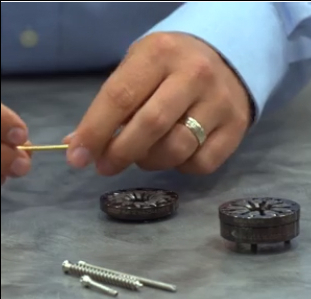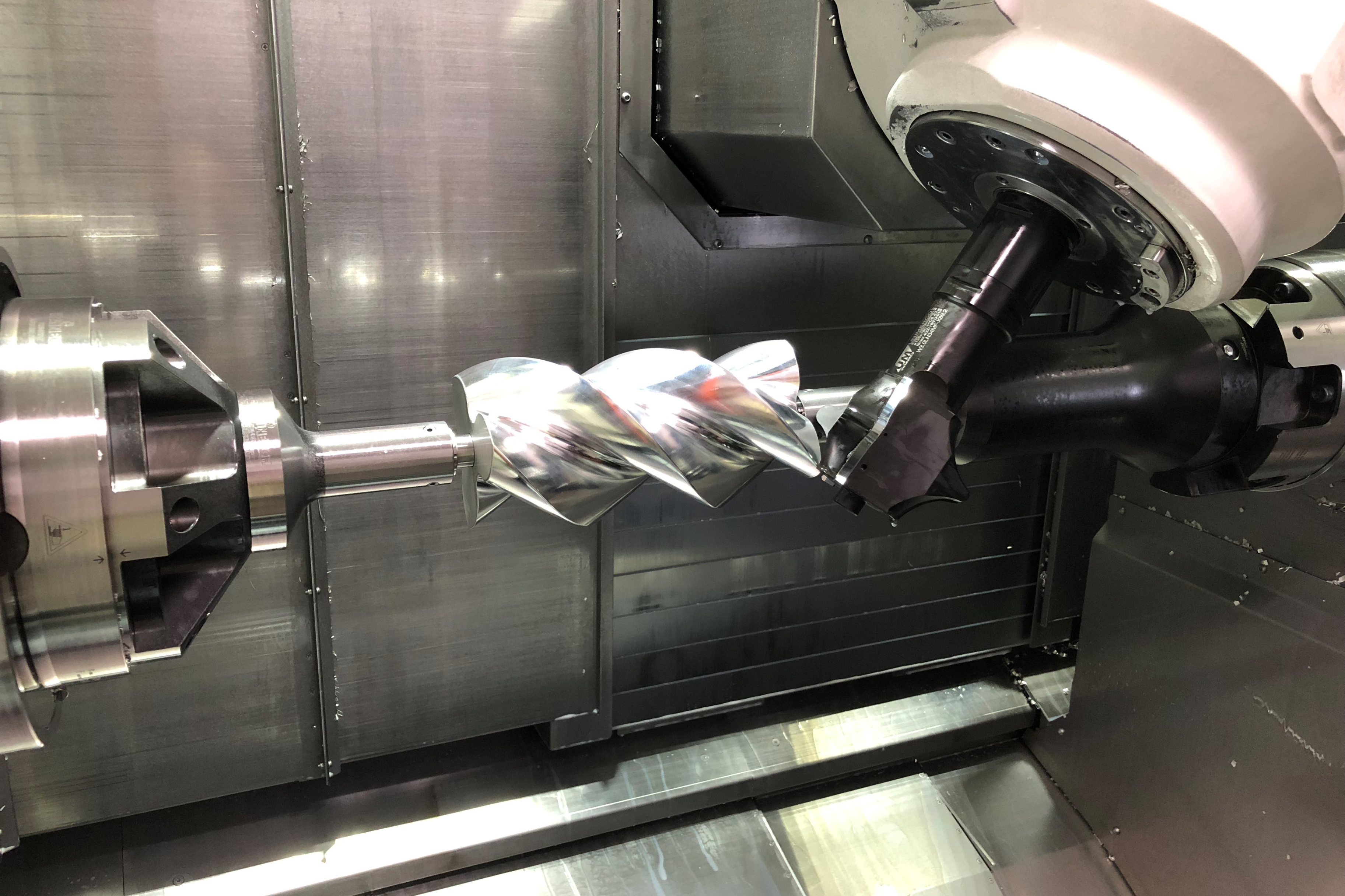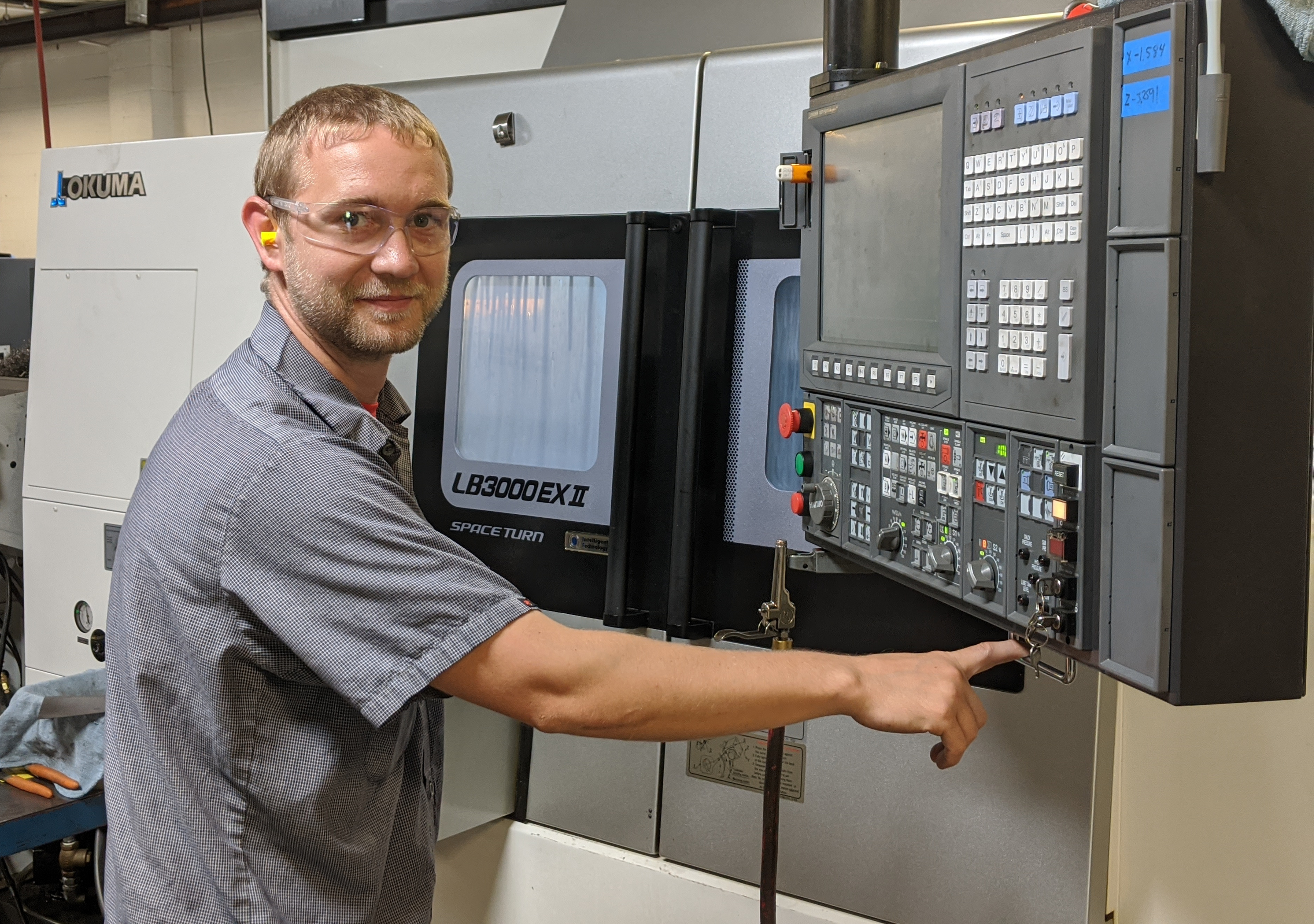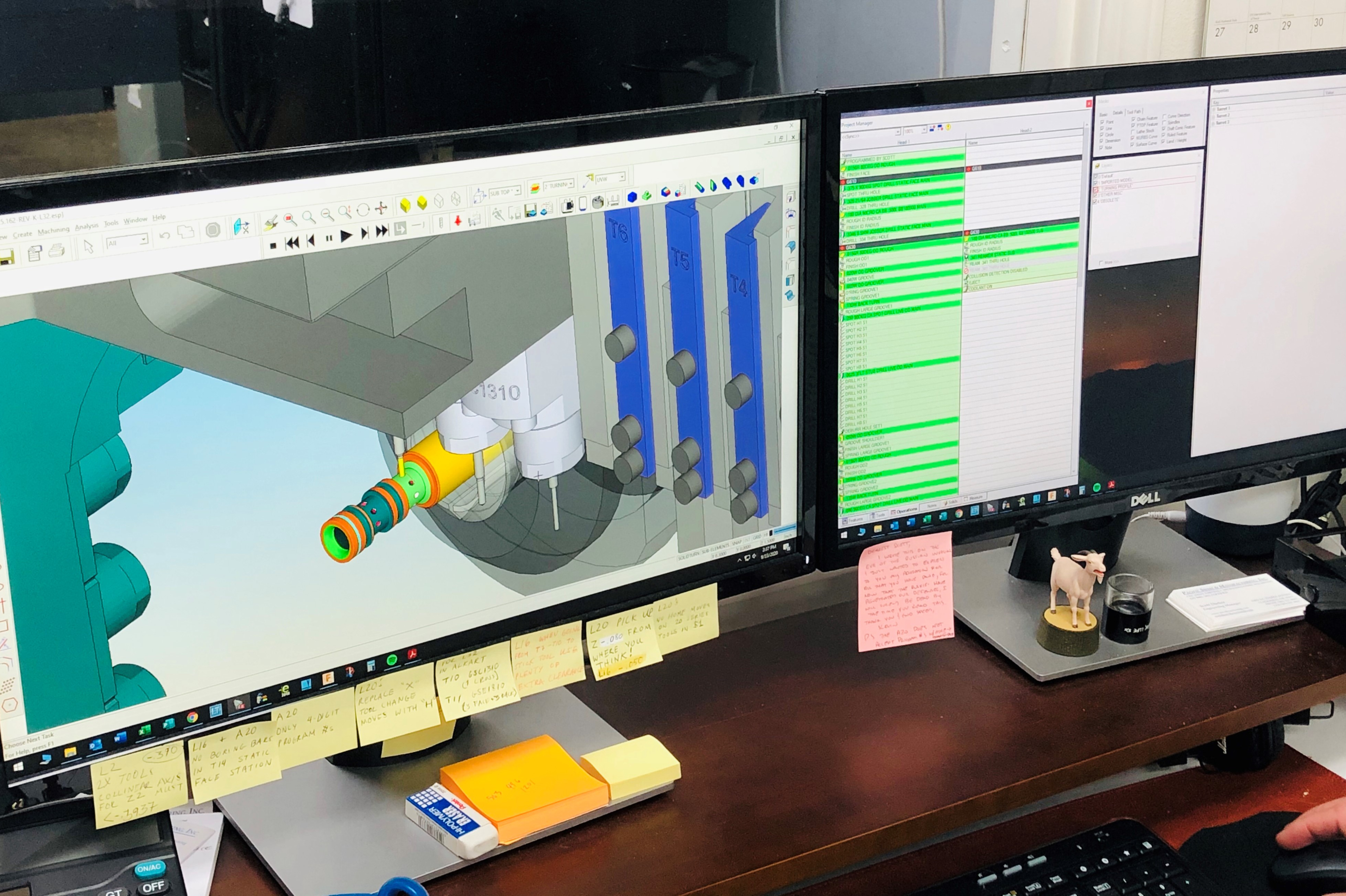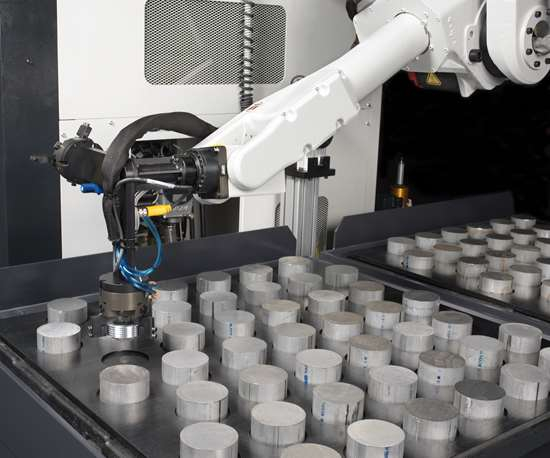后手机禁令
How will you deal with the problem of employees being distracted by devices? This shop implemented a cellphone ban last year. The shop owner says the pain passes, but the benefits last.
Matt Guse, the owner ofMRS Machiningin Augusta, Wisconsin, heard something troubling from his insurance company. A representative of the insurer that covers this 55-employee contract shop toured the shop floor last fall and came to Mr. Guse with a serious concern.
An employee was operating a machine tool while talking on a cellphone, the visitor said.
Mr. Guse admitted this sometimes happens.
The insurer responded that the behavior constitutes distracted use of heavy equipment. MRS’s insurance rates would go up if it continued to tolerate this.
That was hard to hear. But looking back on the exchange, Mr. Guse now says it proved to be one of the best pieces of news he received all year. It forced him to take an extreme and ultimately positive step that he otherwise would not have taken.
As it happened, this shop owner had been concerned for years about employees’ practically addictive use of their phones, chiefly smartphones. Amember of the Augusta school board他徒劳地尝试着bid cellphone use on school grounds. And in his own business, he was also unsuccessful at limiting cellphone use, despite his concerns, because some employees could not comfortably abide the limitation. The shop owner rationalized that cellphone access does have advantages in that employees feel more connected to their families and can obtain machining data more quickly from the Internet than from a handbook. He lived with his concerns.
But the threat of the insurance premium increase made it clear that these advantages were too costly to continue. To avoid the increase, Mr Guse implemented a total ban. No cellphones on the shop floor. And he made it stick.
This issue is actually bigger than manufacturing and bigger than just young people. Plenty of adults are consumed with their devices, too. It is also bigger than the United States. (We ran a blog post recently about a companyretreating from manufacturing in Chinain part because of overuse of cellphones by employees there.) In all fields, employers will have to confront the question of whether employee output or service is compromised because of attention being diverted to personal devices, and if so, where the line is and what to do about it.
InModern Machine Shop’s LinkedIn group, which consists of owners and managers of machining facilities, the discussion about cellphone policy is one of the longer conversation threads in this forum. On the surface, there appears to be a wide range of viewpoints among participants to the discussion on whether cellphone use should be restricted. But in reading the thread more closely, a consensus can be seen. All shop leaders seem to agree that cellphones have the potential to be overly distracting. In the small shops, self-discipline prevails—but perhaps this is because the owners or managers of these shops can directly oversee how well each employee is exercising that discipline. Formal policies start to come as staff sizes grow. In this discussion thread, it is generally the managers of mid-size and larger facilities who have weighed in by sharing the specific rules that their shops have put in place. (Read comments from this exchange.)
When MRS Machining announced its cellphone ban, Mr. Guse says the news was met with resistance. A small number of employees—skilled employees who would be difficult to replace—seemed likely to quit over their distress at this development. The first month was hard, he says.
But none of those employees did quit. And then, postive changes appeared. The shop owner began to see productivity gains. Where once he would have seen an employee seemingly busy keeping one production cell running, sometimes he would now see that employee running two cells at once. Without cellphones to sop up employees’ excess attention, that excess attention was now sometimes finding ways to occupy itself with more work.
He is not the only one who has noticed, he says. Employees have seen this, too. Some thank him. He says some employees have expressed to him that they know they are now getting more done, and they feel better about their days.
And then there was the new customer. A company came to MRS Machining with a proprietary product line. Protection of product information was one of the company’s chief concerns. Mr. Guse was able to say something unique to this prospect.
“Cellphones are banned from our shop floor,” he said. “No one out there has a camera that could be used to capture an image of your part.”
The company said no other supplier had expressed sensitivity to that particular concern. MRS Machining won the business. And the victory can be attributed—at least in part—to an insurance company rep who had delivered serious news just a few months earlier.
RELATED CONTENT
Choosing ERP Vendors And Consultants: It's All About The Right Fit
Looking to upgrade your company's ERP and IT systems? It's all about the right fit between your company and the vendor you select. You will be working with the people you choose for months or even years.
Communication: Motivating Employees To Work In The Best Interest Of The Business
Fair treatment is all most employees ask of their employers. Showing both family and non-family employees what is fair and having open lanes of communication allow for a healthy exchange of what constitutes equitable treatment. Effective communication between management and employees on important issues, such as compensation and firm strategy, needs to take place to maintain a motivated and enthusiastic workforce.
The Pursuit of Perfection
The “Pursuit of Perfection” is how Acero Precision defines its mission and while such lofty words make nice copy, all one needs to do is visit this contract manufacturer to experience how serious the company is about the technology, personnel and processes necessary to make it more than an abstract goal.



.jpg;width=70;height=70;mode=crop)

